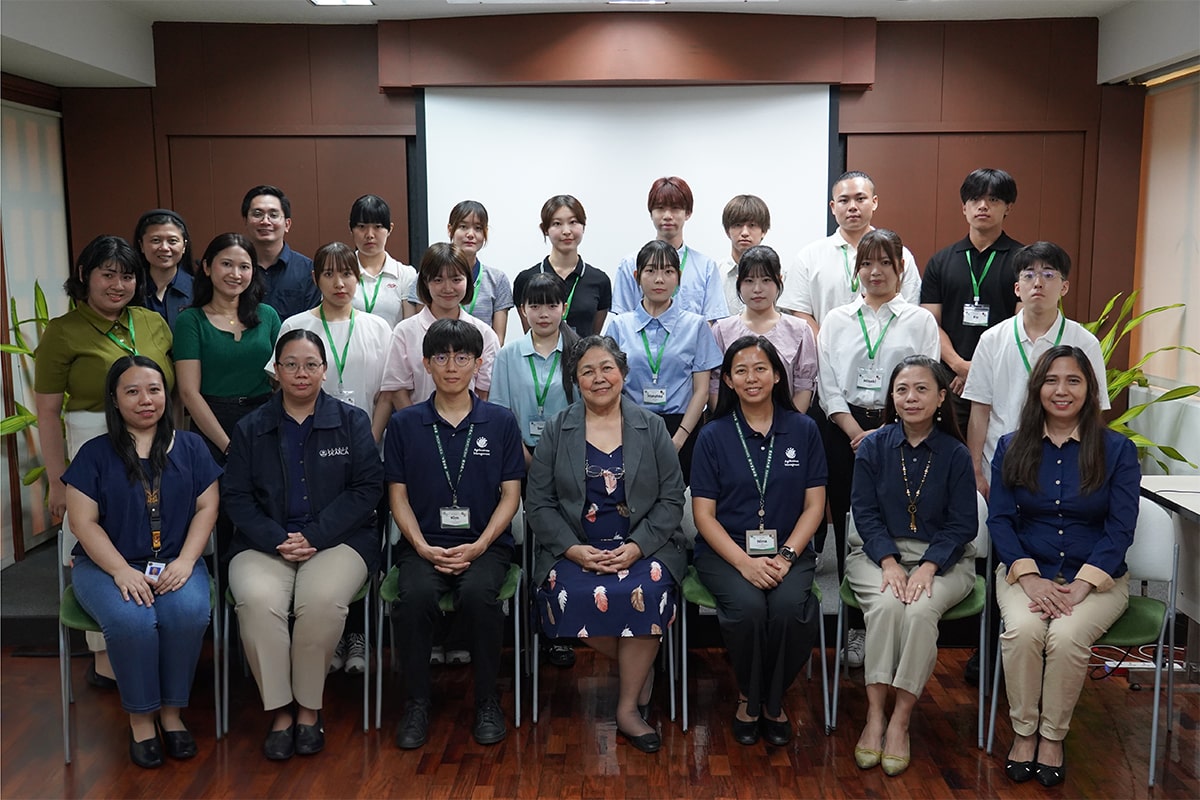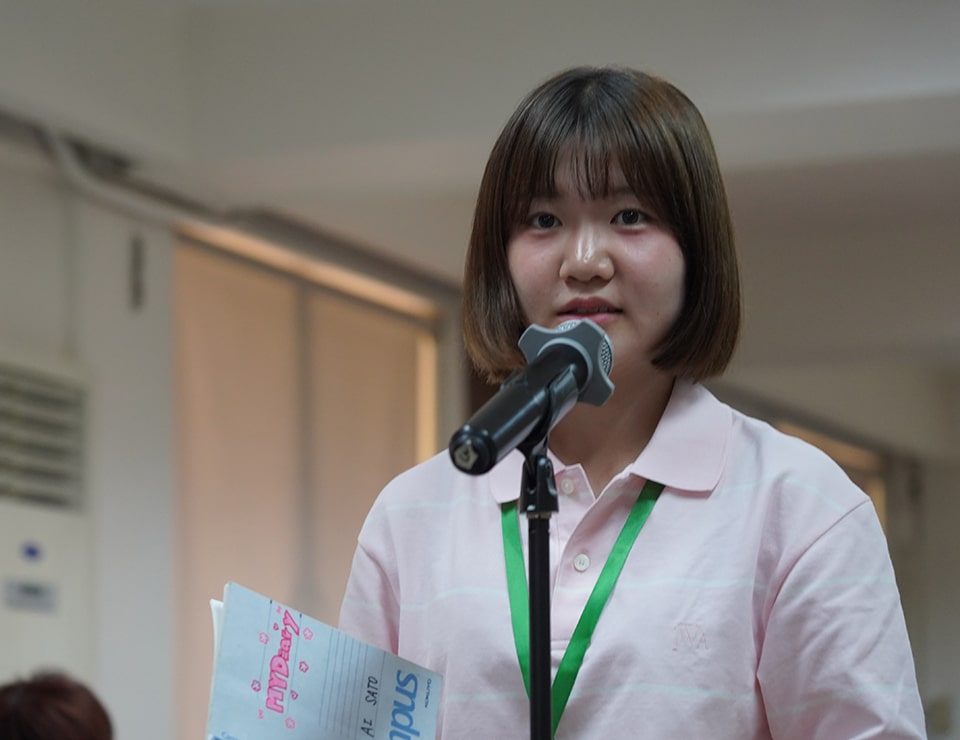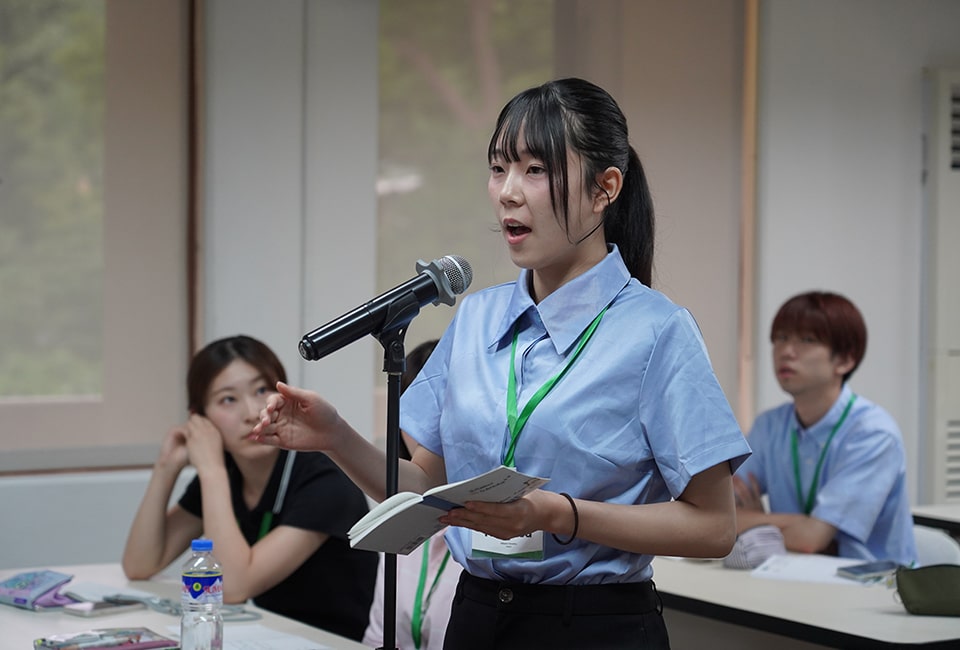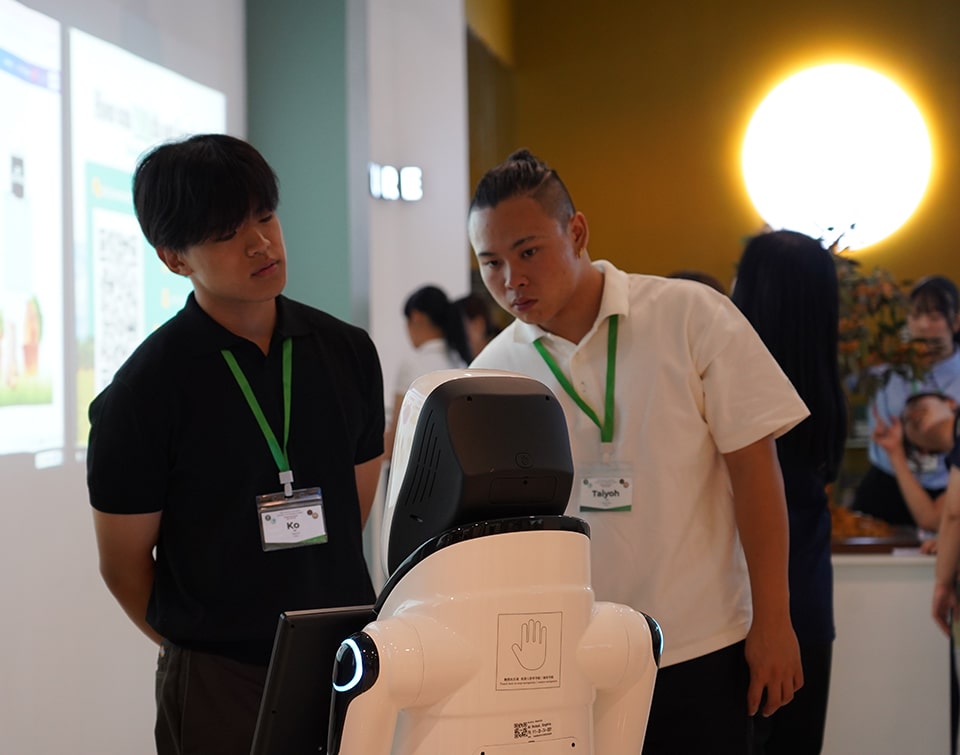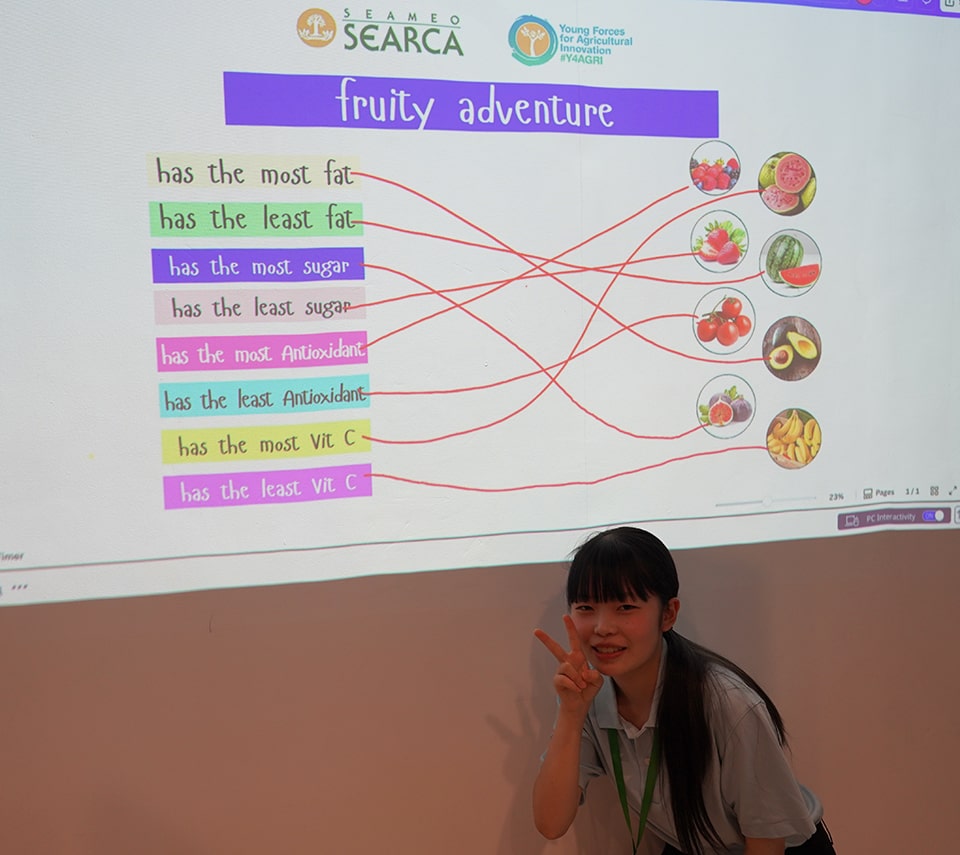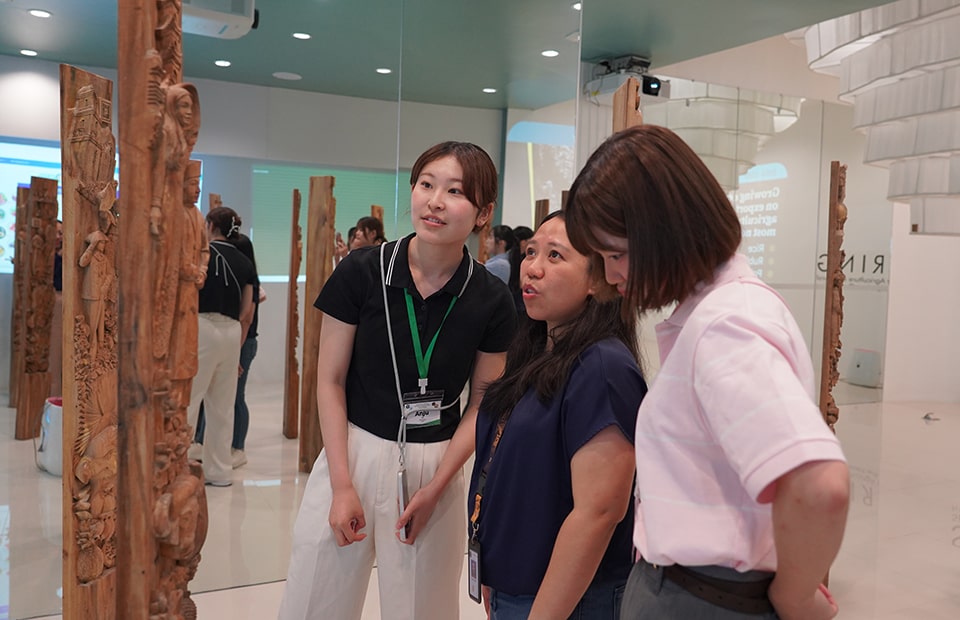Fourteen undergraduate students from Tokyo University of Agriculture (Tokyo NODAI), accompanied by Prof. Dr. Nina Nocon-Shimoguchi and Asst. Prof. Dongyool Kim and faculty members from the Department of Agribusiness Management and Entrepreneurship, University of the Philippines Los Baños, visited the Southeast Asian Regional Center for Graduate Study and Research in Agriculture (SEARCA) on 19 August 2025 for a briefing on the Center's programs and activities related to agribusiness development.
For years now, SEARCA has hosted Tokyo NODAI students for their Philippine Field Practice, with this visit marking the 35th batch of students to take part in this enriching cross-cultural and educational experience.
Prof. Nocon-Shimoguchi expressed appreciation for the long-standing partnership between Tokyo NODAI and SEARCA. She shared that this year marks the 26th anniversary of Tokyo NODAI's Philippine Field Practice, in which SEARCA has consistently played an integral role.
Furthermore, Tokyo NODAI is an associate member of the Southeast Asian University Consortium for Graduate Education in Agriculture and Natural Resources (UC), with SEARCA serving as its Secretariat.
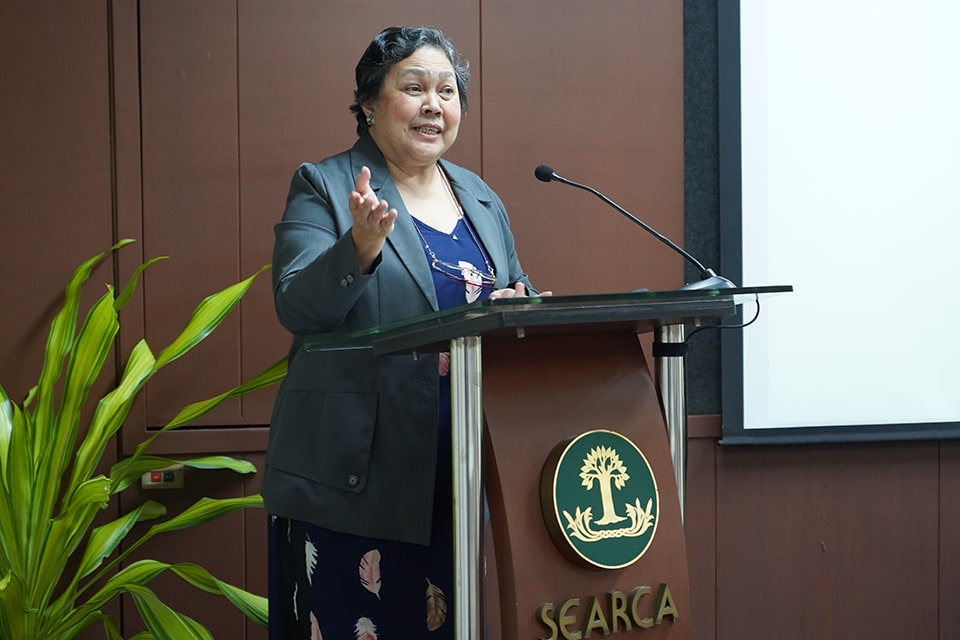
Dr. Mercedita Sombilla, SEARCA Center Director, welcomed the visitors and emphasized the importance of agricultural education. She introduced SEARCA and its three main offerings: graduate scholarships, policy research, and agricultural technology dissemination and explained how these contribute to improving farmers' lives by expanding access to productivity-enhancing technologies. She further highlighted SEARCA's efforts to encourage farmers to view agriculture as a business. To close her message, she encouraged the students to ask questions to deepen their learning.
Mr. Joseph Matthew Hedreyda, SEARCA Senior Associate for Partnerships and Advocacy, reiterated Dr. Sombilla's message and presented SEARCA's core programs: Education and Collective Learning, Research and Thought Leadership, and Emerging Innovation for Growth.
Ms. Bernice Anne De Torres, Program Coordinator at SEARCA's Research and Thought Leadership Department, introduced the Center's key agribusiness development undertakings, with particular focus on agricultural value chain interventions in Southeast Asia. These include the calamansi-focused projects, such as Upgrading the Calamansi Value Chain towards Improving the Calamansi Industry of Oriental Mindoro, which addressed the calamansi industry's technical and market constraints; and the Technical Assistance for Development and Promotion of Calamansi in Oriental Mindoro, wherein SEARCA worked with the Provincial Government of Oriental Mindoro, Philippines to develop their calamansi industry roadmap. De Torres also presented other significant efforts, such as the Development of Coconut Industry Growth Areas in the Province of Quezon.
Furthermore, De Torres discussed the outcomes of the Agricultural Transformation and Market Integration in the ASEAN Region: Responding to Food Security and Inclusiveness Concerns (ATMI-ASEAN). Phase 1 focused on strengthening the institutional capacity of ASEAN Member States to develop and implement policies and sub-regional programs, while also facilitating the integration of smallholders in sub-regional agricultural and food markets. This year, Phase 2 was launched, extending the project's reach to South Asian countries, including Bangladesh, Bhutan, India, and Nepal.
Meanwhile, Ms. Lichelle Dara Carlos, Program Specialist at SEARCA's Emerging Innovation for Growth Department, showcased SEARCA's Grants for Research towards Agricultural Innovative Solutions (GRAINS), which provides funding to innovators who have developed prototypes of solutions to pressing agricultural challenges. Examples of GRAINS-supported projects include an Internet of Things (IoT) system for monitoring water conditions in shrimp farms, black soldier fly technology that converts organic waste into animal feed, automated smart fish feeders that save time and reduce waste, and a satellite-based system that gives farmers alerts on their crops' health. Carlos also presented the Center's ACCELERATOR Program, a hands-on support for startup enterprises in diagnostics, mentorship, market reach, and networking. Collaborations under this initiative include partnerships with Impact Hub for the Accelerating Agri-Business in Cambodia through Subsidized Technical Assistance and with Villgro Philippines for the Sustainable Agriculture & Food Security Enhancement (SAFE) Acceleration.
The session wrapped up with an open forum where students sought clarifications on specific points from the presentations and probed deeper into related ideas or real-world applications.
To conclude the visit, the students toured the SEARCA Hub for Agriculture and Rural Innovation for the Next Generation (SHARING) AgriMuseum, which showcases interactive exhibits on agriculture and rural development.
